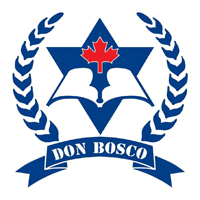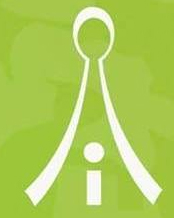Overview
Bachelor of Business Administration (BBA) at Liberty College, Anamnagar, Kathmandu (affiliated with Pokhara University).
The Bachelor of Business Administration (BBA) program at Liberty College, situated in Anamnagar, Kathmandu, and affiliated with Pokhara University, is a comprehensive four-year undergraduate degree designed to provide a wide-ranging education in business management.
This management degree is structured to cultivate versatile professionals with a solid understanding of business operations across various sectors in Nepal and internationally. The BBA program at Liberty College delivers a balanced curriculum of theoretical knowledge and practical skills, preparing graduates for multiple roles in the business world.
This foundational business program is suited for individuals seeking a broad base in business administration principles and practices.

Curriculum Details
The BBA curriculum is organized over eight semesters and follows a structured and progressive learning path. It includes a core set of business courses complemented by opportunities for specialization and elective studies, allowing for personalized educational paths.
Core Courses:
The initial semesters establish a strong grounding in fundamental business areas, such as:
-
Principles of Management
-
Economics (Microeconomics and Macroeconomics)
-
Financial Accounting
-
Managerial Accounting
-
Marketing Management
-
Human Resource Management
-
Business Statistics
-
Business Communication
-
Business Law and Ethics
-
Operations Management
-
These core courses deliver a holistic view of the essential functions and principles that underpin business operations and management.
Specializations (Optional):
In the later stages of the program, students may have the option to select a specialization to deepen their expertise in a particular area. Specializations offered may include:
-
Marketing
-
Finance
-
Human Resources
-
Operations Management
-
Information Systems
-
Specializations allow students to focus their studies and develop more targeted skills relevant to their career aspirations.
Electives:
Alongside core and specialization courses, students can choose from elective courses. These electives can broaden their knowledge base or refine their skills in areas of interest. Elective topics might include:
-
Entrepreneurship
-
International Business
-
Project Management
-
Supply Chain Management
-
E-commerce
-
Organizational Development
-
Electives provide flexibility and allow students to explore emerging business trends or deepen their understanding of specific domains.
Objectives
The main objectives of the BBA program are to:
-
Furnish students with a broad understanding of business administration principles and practices.
-
Enhance essential critical thinking, problem-solving, and decision-making skills within a business context.
-
Cultivate effective communication, teamwork, and leadership abilities.
-
Prepare graduates for entry-level management positions across various industries.
-
Instill ethical awareness and social responsibility in business conduct.
-
Create a foundation for lifelong learning and career advancement in business and management.
Scope
The scope of the BBA program is extensive, covering the diverse functions and disciplines within business administration. It encompasses domestic and international business perspectives, equipping students for roles in a global marketplace. The program's curriculum is designed to be relevant to various industry sectors, providing graduates with versatile skills applicable in numerous organizational settings.
Learning Outcomes
After completing the BBA program, graduates will be able to:
-
Apply fundamental business management theories and principles.
-
Able to analyze business situations and identify practical solutions to organizational challenges.
-
Demonstrate proficiency in core business functions such as marketing, finance, operations, and human resources.
-
Communicate business information clearly and professionally in written and oral forms.
-
Work effectively in teams and exhibit leadership qualities.
-
Make ethical business decisions, considering social and environmental impacts.
-
Utilize technology and information systems to enhance business operations.
-
Adapt to changing business environments and pursue continuous professional development.
Skill Development Modules
The BBA program integrates various modules and teaching approaches to develop critical skills:
-
Analytical and Critical Thinking: Case studies, strategic analysis exercises, and business simulations enhance analytical and critical thinking abilities.
-
Problem-Solving and Decision-Making: Students engage in problem-solving scenarios, business games, and project work to develop practical decision-making skills.
-
Communication and Interpersonal Skills: Presentations, group projects, debates, and report writing assignments improve communication and interpersonal capabilities.
-
Leadership and Teamwork: Group assignments, project roles, and team-based activities foster leadership and teamwork skills.
-
Technological Proficiency: Integrating business software, data analysis tools, and information systems across courses ensures technological competence.
Teaching Methodology
The teaching methods in the BBA program are designed to be engaging, interactive, and practical:
-
Interactive Lectures: Combining theoretical concepts with real-world examples and discussions.
-
Case Study Analysis: Examining actual business cases to apply theoretical frameworks and develop analytical skills.
-
Group Projects and Presentations: Encouraging collaborative learning and enhancing communication skills.
-
Business Simulations and Games: Providing experiential learning through simulated business environments.
-
Workshops and Seminars: Focused sessions on specific business topics and skill development.
-
Industry Interaction: Guest lectures from business professionals, industry visits, and internships to provide real-world exposure.
Faculty Expertise
The faculty teaching in the BBA program is composed of experienced educators and professionals with strong academic backgrounds and industry experience. They hold advanced degrees in business administration, management, economics, and related fields. Faculty members actively participate in research and professional development, ensuring they bring current knowledge and effective teaching practices to the classroom.
Admission Requirements
To be eligible for admission to the BBA program, applicants must have completed class 12, an equivalent level of education from a recognized institution, fullilling the minimum grade requirements set by the college. The admission process typically includes:
-
Submission of an application form and required documents.
-
Academic transcripts and certificates from prior education.
-
Performance on the Liberty College Admission Test (LCAT).
-
Personal Interview to assess suitability and motivation.
Liberty College announces specific admission criteria, grade requirements, and deadlines annually.
Career Opportunities
Graduates of the BBA program are prepared for various entry-level positions in various sectors, including:
-
Management Trainee
-
Business Analyst
-
Marketing Executive
-
Sales Manager
-
Human Resource Generalist
-
Operations Coordinator
-
Customer Relationship Manager
-
Retail Manager
-
Banking Associate
-
Entrepreneurial Ventures
The broad business knowledge and versatile skills developed in the BBA program provide a solid foundation for career growth in diverse organizational settings.
Student Life and Extracurricular Activities
Liberty College offers a vibrant student life with numerous extracurricular activities to complement academic learning. BBA students are encouraged to participate in business clubs, case study competitions, entrepreneurship workshops, and leadership development programs. These activities enhance practical skills, provide networking opportunities, and enrich the college experience.
Scholarships and Financial Aid
Liberty College is committed to making education accessible. To support deserving BBA students, it offers various scholarships and financial aid options. These may include merit-based scholarships, need-based financial aid, and scholarships for specific student categories. The college's financial assistance office can provide detailed information on scholarship availability and application procedures.
Why Choose This Course?
Choosing the BBA program at Liberty College offers several distinct advantages:
-
Broad Business Foundation: The program delivers a comprehensive understanding of business administration, preparing graduates for diverse roles.
-
Versatile Skill Development: Emphasis on critical thinking, communication, and problem-solving ensures graduates are adaptable and practical.
-
Experienced Faculty: Learn from expert and experienced faculty members and industry professionals.
-
Industry-Relevant Curriculum: The curriculum is developed to align with current business practices and industry needs.
-
Wide Career Scope: Graduates are prepared for diverse career paths across various industries and sectors.
Why Choose This College?
Liberty College provides a supportive and effective learning environment with:
-
Established Reputation: A well-regarded institution affiliated with Pokhara University.
-
Modern Infrastructure: Well-equipped classrooms, computer labs, and library facilities support effective learning.
-
Student-Centered Approach: A focus on student support, personal development, and a positive learning atmosphere.
-
Prime Location: Situated in Kathmandu, offering access to business networks and opportunities.
Conclusion
The BBA program at Liberty College is a well-structured and comprehensive undergraduate degree that provides a strong foundation for a successful career in business administration. Its broad curriculum, emphasis on practical skills, and good learning environment make it an excellent choice for students seeking a versatile and valuable business education in Nepal.
Contact Liberty College's administrative office for detailed information on the Bachelor of Business Administration (BBA) course, including fees, scholarships, facilities, counseling, eligibility criteria, etc.

















